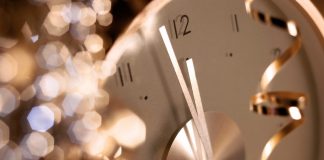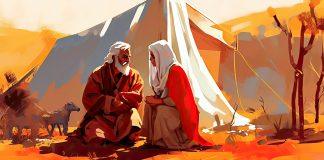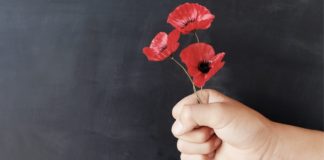How to mend a relationship and improve it
There are many reasons why your daily interactions may become tense and even fractured, but if you decide to mend a relationship, you could also take a few extra steps to improve it.
Why it’s important to have New Year’s resolutions
New Year’s resolutions are beneficial, according to experts at the Sacramento State University, who found that this method is 10 times more effective for successfully meeting goals over a longer period of time than the method chosen by those who decide to change certain aspects of their lives at another time of the year.
About motivation, comfort and procrastination…
I accepted the challenge of writing about motivation thinking it was an easy task, after so many motivational speeches read, listened to, or given.
How to stick with your New Year’s resolutions
The end of a year is both a period of revising and the most favorable time for drafting wishes for the upcoming year. However, the problem arises when we realise that last year’s resolutions have remained unfulfilled in the absence of a concrete plan.
Some still believe in education
Is it worth fighting for a better world? Is it worth believing that, in a world relentlessly subject to the laws of entropy, hope, good thinking, beauty will still have the chance to develop and enrich our life horizon through education? Can tomorrow's world be better than today's, when everything we hear seems to be so catastrophic, and everything we do seems to...
3 features of self-loathing people that can transform them
In sync with our modern culture, many people obsess about self-esteem, not really knowing what it means. Giving up self-loathing seems to them an impossible task. And indeed, how does one reach self-respect? Instead of a straightforward answer, here are some insightful questions to prove that you are worthy and that you can trust yourself.
Are you being watched?
On 17 March 2018, the world felt naked thanks to social media giant Facebook. It was confirmed that 87 million users’ personal information had been shared through an app developed by British consulting firm Cambridge Analytica.
Mountains climbed with baby steps
Whether we see ourselves or not as living collections of our habits, we know from experience that, once formed, our habits are not as malleable as we would like them to be.
The role of Christian marriage counselling
Isaac and Rebecca, two biblical characters, had problems in their marriage. At first they struggled to fall pregnant. Then, when she eventually got pregnant, it was a difficult pregnancy, which affected them very much—so much so that they didn't know what to do. I suppose they had all sorts of discussions about the situation, but at some point the discomfort just became too...
COVID-19: What people on the front line think and feel
While most of us have been staying inside for several weeks, many leave the safety of their homes every day to help us live our lives as normally as possible.
In the arms of the coach
What can you do in the face of a terrible diagnosis, which condemns you to life in a wheelchair? What can you choose besides despair or resignation? Kayla chose to run.
COVID-19: Lessons on happiness from an invisible teacher
When life takes a bad turn, we are often tempted to console ourselves with nostalgia. We begin to look at the past in a different light. We realise that we had been too demanding of ourselves, of others, of the world. That even though we had everything we needed we still wanted more. That we were always looking for something else, without paying...
What we can learn from our children
The relationship between a parent and their child is one of the most significant in their lives, with its primary role being education.
31 days of Christmas
I love Christmas, and opening Nathan Brown’s book, Advent: Hearing the Good News in the Story of Jesus’ Birth, reading each page, is like opening a carefully wrapped Christmas present, undoing the gift card attached with ribbon and bow, folding back the bright cellophane wrapping and lifting the lid off a curious little box containing the Gift itself. The gift in this case...
Life in the vicinity of death
One night while checking on his patients in a palliative care centre, the therapist risked asking a confusing question to a person whose universe had shrunk to the size of his sickbed: “What brought you joy today?” The answer was immediate: “Being alive.”


























